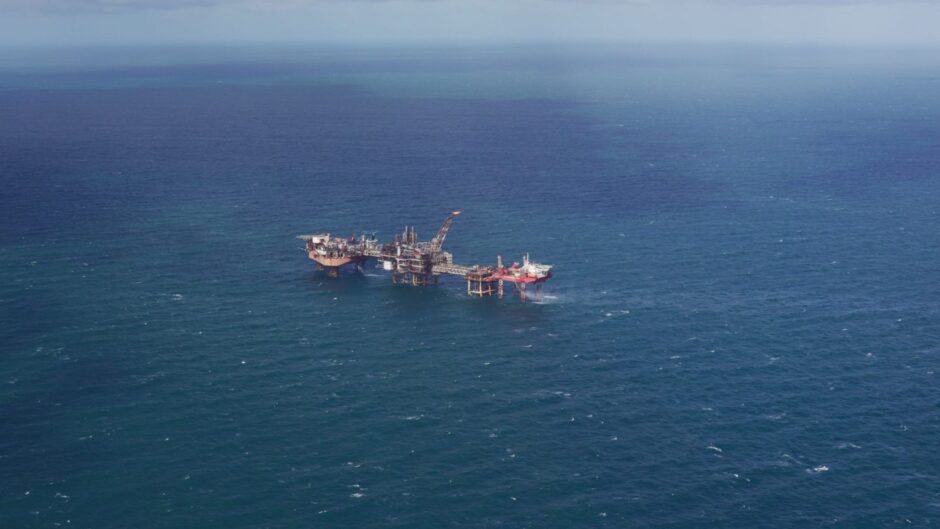
Two UK Track 1 carbon capture, utilisation and storage (CCUS) projects have pushed towards final approval after the Department for Energy Security and Net Zero (DESNZ) proposed offering them CO2 transport and storage licences.
One licence is due to be granted to Liverpool Bay CCS, an affiliate of Italy’s Eni and part of the HyNet North West CCUS cluster. The other licence is due to be granted to Net Zero North Sea Storage, part of the East Coast Cluster.
The HyNet North West CO2 pipeline received development consent in March 2024. At the time, the Eni-led HyNet consortium said the development consent order (DCO) took the HyNet CCS cluster closer to a final investment decision (FID), which was being targeted for September 2024.
The CO2 captured from HyNet participants is expected to be stored in depleted natural gas fields in Liverpool Bay.
Eni plans to re-use miles of existing pipeline, including a gas import pipeline from the Point of Ayr (PoA) Gas Terminal, which would become an export pipeline to transport CO2 to a newly built Douglas CCS platform.
These will be connected to a newbuild platform at the Douglas complex, which will transfer the gas to the Hamilton Main, Hamilton North and Lennox satellite platforms for injection into their respective reservoirs.
New topsides would be installed on the three wellhead platforms, and the reservoirs will accept a combined 109 million tonnes of CO2, spread across Hamilton Main (53 Mt), Hamilton North (18 Mt) and Lennox (38 Mt).
Mitsubishi Heavy Industries (MHI) will provide the technology needed to capture the CO2 as part of a low-carbon hydrogen plant forming part of the HyNet CCUS cluster.
Eni has already secured a series of storage permits around Liverpool Bay with the intention of storing up to 4.5 million tonnes of CO2 per year before 2030, rising to a potential 10 million tonnes later next decade.
Northern Endurance Partnership
Meanwhile, Net Zero North Sea Storage, via its Northern Endurance Partnership (NEP), is advancing the Humber carbon capture pipeline.
According to its website, the NEP – comprising BP, Equinor and TotalEnergies – held an initial public consultation on its proposals over the summer of 2024. Feedback from this initial consultation is now under review and another round of consultation will be held before the partnership applies for development consent for the pipeline.
The CO2 captured from participants in the East Coast Cluster will be stored in a saline aquifer known as Endurance.
Saipem will build a CO2 transport pipeline approximately 145 km (90 miles) with associated landfalls and onshore outlet facilities for the NEP project.
The pipeline offshore operations will be performed by Saipem’s Castorone vessel, and the nearshore operations will be performed by Saipem’s shallow water pipelay Castoro 10.
The development consent application is expected to be in line with the next phase of the UK government’s cluster sequencing process, which will select CO2 capture projects that could connect to the pipeline. Any updates to the pipeline’s design, as well as preliminary results of environmental surveys and assessments, will be shared at this point.
While DESNZ has issued the proposal, final decisions to grant the licences remain subject to approval by UK secretary of state for energy security and net zero Ed Miliband.
For the licences to be granted, various conditions need to be satisfied – including sufficient funding arrangements, subsidy control compliance, value for money assessments and the necessary permits and consents being in place for the CCUS projects. The notice of proposal contains a draft template for the licences, as well as updated conditions.
The government said the aim of the licences was to provide the companies involved with long-term revenue certainty, in a bid to help them establish – and potentially scale up – CO2 transport and storage infrastructure.
But while the granting of CO2 transport and storage licences is being talked up as a step towards FID for these CO2 pipeline projects, uncertainty over how government funding is to be paid out means there is a risk of delays as private sector players await both clarity and funding support itself.
Recommended for you
